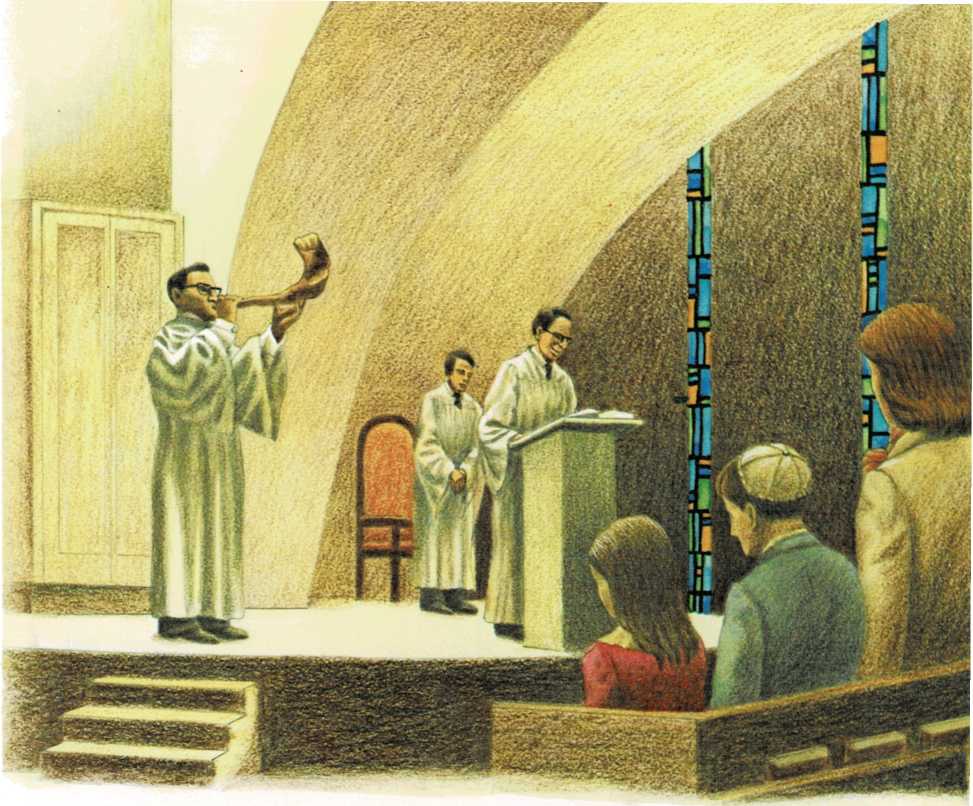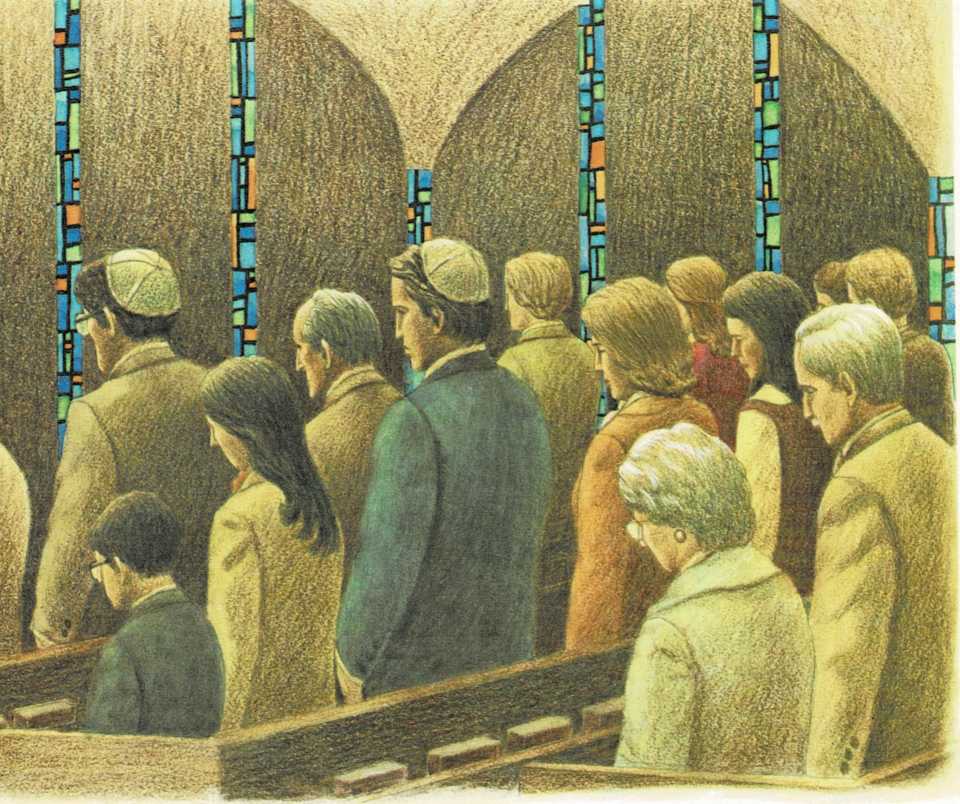
Yom Kippur
The Day of Atonement
In the Hebrew language, Yom Kippur [(yahm kihp]{.smallcaps} uhr or
[yohm]{.smallcaps} KIH poor) means \”Day of Atonement.” Atonement means
to make up for something bad you have done. For Jewish people, Yom
Kippur is a day when they try to think of all the wrongs they have done
and ask God’s forgiveness.
Yom Kippur is the most important and holiest day of the Jewish year. It
comes nine

days after Rosh Ha-Shanah (see page 256). Like all Jewish holy days, Yom
Kippur begins at sunset. Most people go to a service at a synagogue in
the evening and again the following morning.
From the beginning of Yom Kippur until sunset the next day, people do
not eat or drink anything—not even water. The day is spent quietly at
home. In the late afternoon, many people go to another synagogue
service. At sunset, a blast on the shofar, or ram’s horn, is a sign that
God has closed the Book of Life. The Day of Atonement is over.

